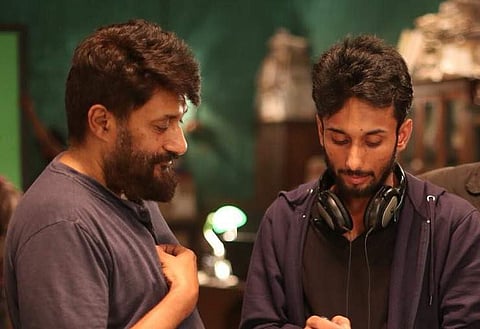
- LIFESTYLE
- FASHION
- FOOD
- ENTERTAINMENT
- EVENTS
- CULTURE
- VIDEOS
- WEB STORIES
- GALLERIES
- GADGETS
- CAR & BIKE
- SOCIETY
- TRAVEL
- NORTH EAST
- INDULGE CONNECT

The Bollywood film The Kashmir Files is about a blood-stained, highly controversial period from the pages of India’s history. The film has witnessed a possibly incendiary response across the country since its release. We speak to Saurabh M Pandey, the research head, screenplay writer and script supervisor, to go behind the scenes and learn more about the making of the feature film that claims to portray the grisly happenings of January 1990 in Kashmir:
How did you get the idea to make a film on this sensitive subject?
I had earlier worked with filmmaker Vivek Ranjan Agnihotri on The Tashkent Files as a researcher and script supervisor. It was his idea to make a film on this subject as well.
How did you do research for this film?
We started interviewing a lot of people day after day. We read many books and articles, and watched several documentaries on this. We also met and spoke to experts on the subject. We took some time to filter and collect data. That was in Phase 1. When we moved to Phase 2, we met and spoke to the victims, their family members and people who had been present in Kashmir (during that period). We interviewed people from Delhi, Jammu, Bengaluru and every other place where we had a volunteer who wished to give us insights. A couple of them even went to the UK, Australia and Canada, met people and spoke to them about their experiences in the ’90s. We took everything on record and tried to make sense of the stories we had read and heard. Then, we filtered all the content once again and proceeded.
What were the challenges that you faced while working on this film? Because it covers a highly controversial topic…
The whole idea of The Kashmir Files was to bring out the atrocities of people whose truth nobody knew. So, having conversations around it and shedding light on it is not controversial, in my opinion. And if it is so, then it is very unfortunate. Also, the main point was that a lot of us thought Kashmir was paradise. But when we started going deeper into this, we understood that so many things went wrong during those years.
How was it working with filmmaker Vivek Agnihotri again?
Working with him has given a new dimension to my career. When I met him for The Tashkent Files, it was a huge turning point for me. He is very passionate about his craft, and his energy level is amazing. I feel motivated and wish to match his level of energy for his work. I have learned so much from him on how we must focus on putting out a story as a writer and how to stay fearless.
Do you plan to work on more such content? Do you have any upcoming projects in the pipeline?
Yes, I have two to three projects, but I am not in a position to talk about them.
What are the topics that you would like to work on next?
Next, I want to write on mythology or war.